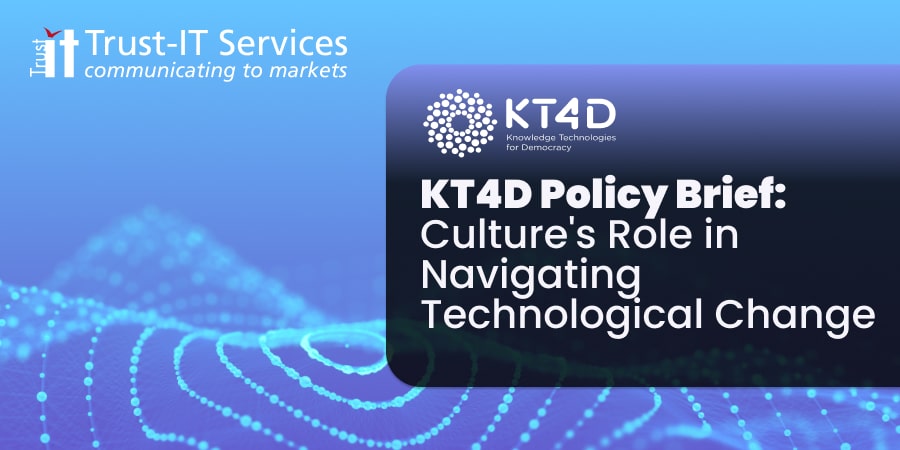
2024 is being defined as the election year. More than half of the global population will be called to the polls, exercising their right to vote. This year more than ever, we are confronted with questions concerning the health of our political and social systems, forcing us to question the inherent threats we should foresee.
2024 is not only crucial for elections, but it has already been proven to be crucial for AI too. Two years ago, AI was integrated into the lives of the general public, and it has not ceased to blow us away with a vertiginous and relentless development. Now, one may wonder what this might have to do with democracy, and this is where the KT4Democracy.eu (KT4D) project comes in.
The EU-funded KT4D project focuses on trying to understand the implication of AI and Big Data on Democracy. For the European Union, which is based on principles of democracy, it is fundamental to keep questioning what could undermine these principles acknowledging persistent or emerging challenges and opportunities,while also maintaining an eye on what could arise in the future.
The European Union took an influential stand towards AI regulation with the EU AI Act, which analyses the effects that this technology could have on all aspects of our lives, including on the transparency and fairness of our democracies. KT4D pointed out the importance of also considering culture in the risk-assessment framework outlined by the European Commision and gathered its recommendations in a Policy Brief entitled ‘Culture's Role in Navigating Technological Change’.
As we have witnessed from the relationship between technology, especially information technology, and democracy, society and cultures are highly impacted by technological change. Advancements in technology not only shape how we see the world, they also change how far we can see, redefining new horizons, while opening and merging cultures with one another. The KT4D Policy Brief suggests that the current attitude towards technology overlooks the diversity of European cultural values and summarily addresses values like trust and freedom. By integrating culture-led perspectives into policy frameworks, the aim is to better preserve cultural diversity and values amidst technological advancements, ensuring inclusivity and the preservation of cultural heritage.